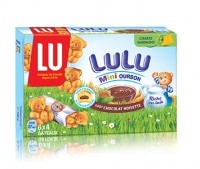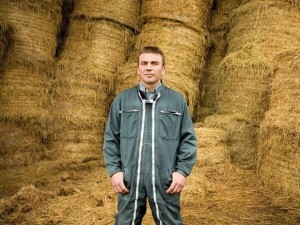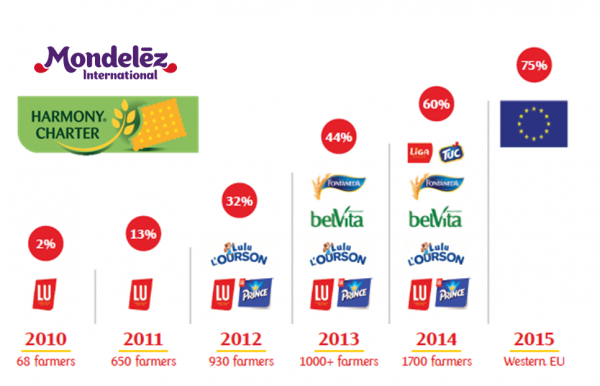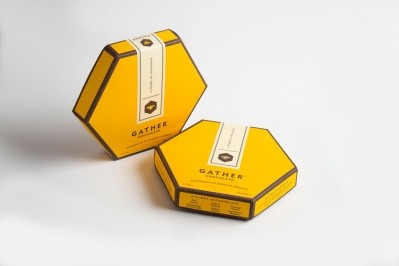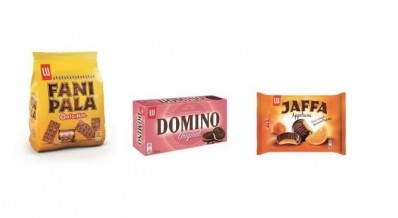Mondelēz presses biscuit industry to limit enviromental impact of wheat sourcing
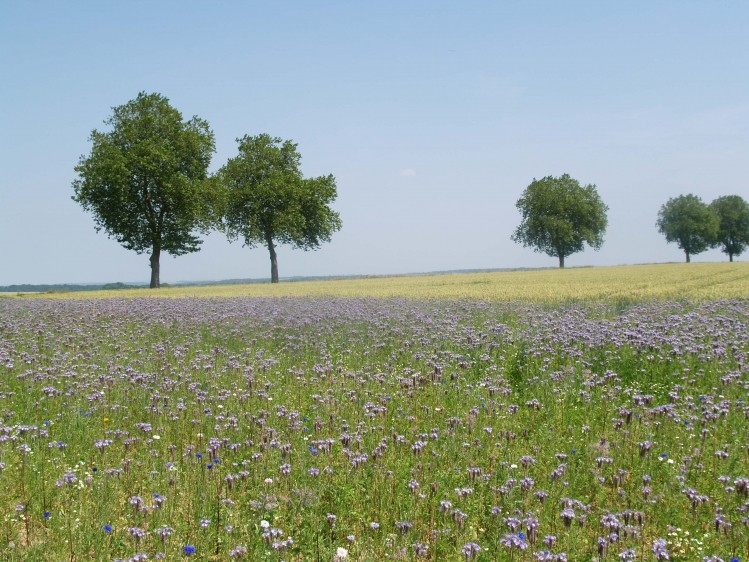
Since the firm’s predecessor Kraft Foods acquired the LU Group from Danone in 2007, Mondelēz has been scaling up a sustainable wheat program it calls Harmony.
Harmony was instigated by Danone in France with 60 farmers under the LU brand around six months before the Kraft acquisition. Mondelēz has since scaled up the program to cover 2,100 farmers, making up 75% of its wheat supply in Western Europe.
The program aims to reduce the environmental impact of the wheat supply chain by sourcing closer to biscuit factories, encouraging biodiversity, reducing water consumption and only using pesticides when absolutely necessary to preserve bee and butterfly populations.
Industry call to step up
Biscuit market leader
Mondelēz is the world’s leading biscuit company. Biscuits accounted for 38% of the firm’s 2014 sales, making it Mondelēz’s largest category ahead of chocolate (31% of sales). Oreo, belVita, Barni, Club Social, Chips Ahoy! and Tuc are among the firm's key biscuit brands.
Albert Mathieu, president of Mondelēz’s European biscuit business, told ConfectioneryNews: “The next step for Harmony is to inspire other manufacturers and industries using wheat to use the same approach.”
Mondelēz is considering scaling up its Harmony program in North America and emerging markets. Its current program makes up only 0.2% of global wheat production, meaning other companies need to step up to reduce wheat’s impact on the environment.
“The Tescos and Carrefours of this world want to know more about how you are minimizing the environmental impact of your products,” said Mathieu.
Reducing pesticides to save bees
Under the Harmony program, Mondelēz says it used 20% fewer pesticides from 2009 to 2012 compared to the French Ministry of Agriculture’s 2008 national average.
Mathieu said such a move was crucial to preserve populations of bees and butterflies that pollinate crops.
“Seventy to eighty per cent of wheat we eat is enabled by natural pollination and the population of bees is declining rapidly,” he said.
A recent study by the International Union for the Conservation of Nature (IUCN) found one in 10 of Europe’s wild bee populations species face extinction with intensive farming and pesticide-use cited as key causes.
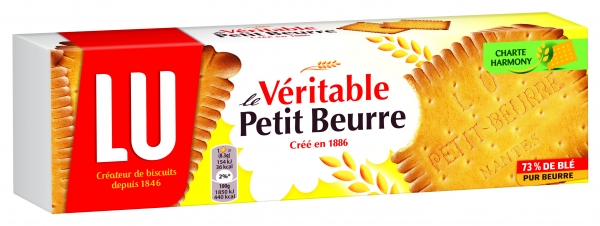
Wheat quality
Mondelēz sources the majority of its wheat in Europe from communities of farmers close to its biscuit factories to reduce emissions from logistics and transport.
Mathieu added that Harmony allows Mondelēz to source a consistent quality of wheat.
“What we’ve seen in our industry is that from one wheat to another you can have great variability in your product….we can achieve the best taste – a constant and regular taste,” he said.
The European biscuit boss said it was key for power brands like belVita to taste the same every time.
He added that the program allowed full traceability. “We can put a name of a farmer to each grain of wheat,” said Mathieu, who was Regional President of Mars Food Europe before joining Mondelēz in 2013.
The Harmony program also encourages biodiversity with farmers required to plant pollinator-friendly flowers on 3% of their field surface.
Strict criteria and premium
Measuring performance
There are two main key performance indicators for the Harmony program:
- Tracking populations of natural pollinators (bees and butterflies) around the Harmony fields
- Reduce in pesticide use
Mondelēz also plans in future to track water consumption.
Farmers must comply with strict 51-point criteria to be part of the program.
“We do pay a price premium to the farmers to have these set of measures,” said Mathieu.
It takes Harmony farmers two years to yield their first Harmony wheat after joining the program and Mondelēz says their yields will remain constant compared to levels before joining the program.
Non-GMO
Wheat sourced under Harmony is non-GMO and is not manipulated in any way.
“Europe and GMO don’t work together. It’s not an option because consumers don’t want to see it in Europe,” said Mathieu.
Mondelēz is running a pilot program on wheat fields in the US and is considering rolling out Harmony in North America. But Mathieu said the company had yet to build a strong network of farmers in the US like it has in Europe.
